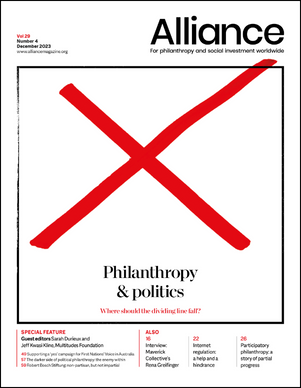While mainstream funders might shy away from an overtly political stance in their philanthropy, those who seek to undermine democratic principles often have no such scruples
Anti-democracy movements have been at work for much longer than we think. But between distrust of democracy, the separation of activism and politics, and the desire of actors to ‘re-main neutral’ for fear of being accused of being partisan, we’ve let the enemy gain ground.
These enemies range from Victor Orban to Steve Bannon to Marion Maréchal. They are fine strategists, ‘engineers of chaos’, to use Giuliano Da Empoli’s expression. They are extremely organised and have excellent practices, such as mobilising thousands of fake profiles to raise a cause on social networks – particularly if it is divisive – supporting conservative influencers reaching a young audience, waging a meme war1 or raising armies of trolls via 4Chan and other Roblox.
It’s called meta-politics, and it’s expensive. The business model of anti-democratic movements therefore necessarily relies on funders.
Subscribe now from only £45 a year!
This article is only available for our subscribers
Existing users can login here


